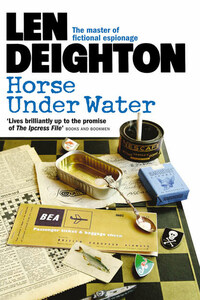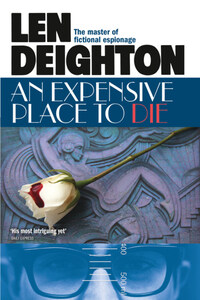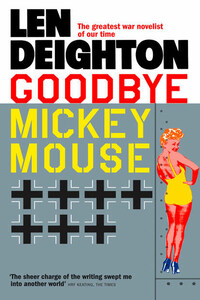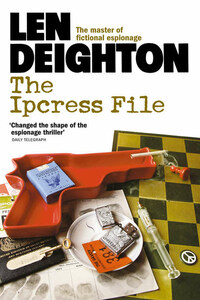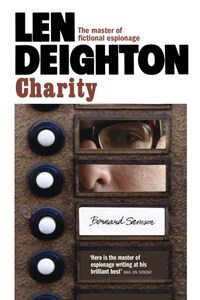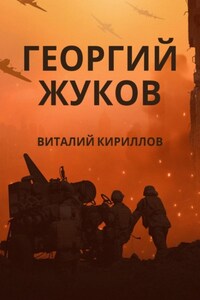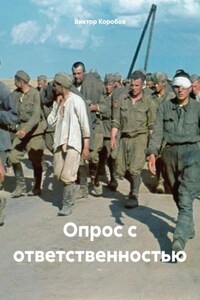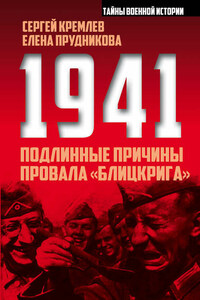These novels are entirely works of fiction. The names, characters and incidents portrayed in them are the work of the author’s imagination. Any resemblance to actual persons, living or dead, events or localities is entirely coincidental.
Published by HarperCollinsPublishers Ltd 1 London Bridge Street London SE1 9GF
www.harpercollins.co.uk
Bomber first published in Great Britain by Jonathan Cape Ltd 1970 XPD first published in Great Britain by Hutchinson & Co. (Publishers) Ltd 1981 Goodbye Mickey Mouse first published in Great Britain by Hutchinson & Co. (Publishers) Ltd 1982
Copyright © Pluriform Publishing Company BV 1970, 1981, 1982
Introductions Copyright © Pluriform Publishing Company BV 2009
Cover design © Arnold Schwartzman 2009
E-bundle cover design © HarperCollinsPublishers Ltd. 2013
Len Deighton asserts the moral right to be identified as the author of this work
A catalogue record for this book is available from the British Library
All rights reserved under International and Pan-American Copyright Conventions. By payment of the required fees, you have been granted the nonexclusive, nontransferable right to access and read the text of this ebook on-screen. No part of this text may be reproduced, transmitted, downloaded, decompiled, reverse engineered, or stored in or introduced into any information storage and retrieval system, in any form or by any means, whether electronic or mechanical, now known or hereinafter invented, without the express written permission of HarperCollins ebooks
HarperCollinsPublishers has made every reasonable effort to ensure that any picture content and written content in this ebook has been included or removed in accordance with the contractual and technological constraints in operation at the time of publication
Source ISBNs: 9780586045442, 9780586054475, 9780586054482
Ebook Edition © SEPTEMBER 2013 ISBN: 9780007546503
Version: 2017-08-18
Ritual: A system of religious or magical ceremonies or procedures frequently with special forms of words or a special (and secret) vocabulary, and usually associated with important occasions or actions.
Dr J. Dever,
Dictionary of Psychology (Penguin Books)
Between February 1965 and July 31st, 1968, the American bombing missions in Vietnam numbered 107,700. The tonnage of bombs and rockets totalled 2,581,876.
Keisinger’s Continuous Archives
The attitude of the gallant Six Hundred which so aroused Lord Tennyson’s admiration arose from the fact that the least disposition to ask the reason why was discouraged by tricing the would-be inquirer to the triangle and flogging him into insensibility.
F. J. Veale,
Advance to Barbarism (Mitre Press, 1968)
Bomber was the first fiction book written using what is now called a ‘word processor’. In 1969 that name did not exist. It was an IBM engineer visiting my home at the Elephant and Castle in London to check my golfball typewriter, who asked me: ‘Do you know how many times your secretary has retyped this chapter?’ He waved pages in the air.
‘Half a dozen times?’ I said defensively. I knew my wonderful Australian secretary Ellenor Handley retyped chapters only when her typewritten words were almost obscured by my handwritten changes.
‘Twenty-five times,’ said the IBM man. ‘Your poor secretary!’
I tried to look repentant.
Along the street at the mighty Shell Centre, IBM had installed banks of computer-driven machines that produced printed in-house essentials such as instruction manuals.
‘Come along and see them,’ urged the IBM man. Being somewhat obsessed by machinery (while not really understanding it) I went along. Soon I became the only private individual permitted ownership of an IBM MT 72 computer. It was the size and shape of a small upright piano. I was very proud of that machine, I showed it to everyone who visited me, but it was Ellenor who mastered it.
My friend Julian Symons, the writer and doyen of critics, said I was the only person he knew who actually liked machines. ‘Perhaps you should write a book about them’, he said, only half seriously. That was the start of Bomber. Does everyone hate machines? Perhaps they do; so suppose I wrote a story in which the machines of one nation battled against the machines of another? Yes, I knew about that. I had been bombed every night for months at a time in London. The night bombing campaigns were fought in complete darkness, with both the enemy aircraft and the terrain below depicted only as tiny blips and blobs on glass screens. The combatants never saw their enemies. It had a spooky fascination for me but would such a grim mechanical theme overshadow a story’s human element?

